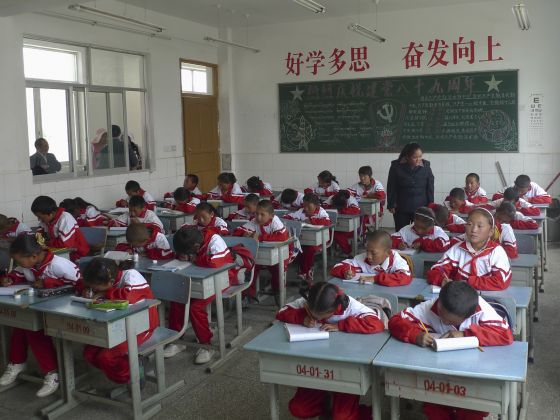As the Chinese Government limits Tibetan language instruction in schools and monasteries in the Tibetan Autonomous Region (TAR), educational equity is becoming a new frontier for cultural preservation within Tibetan communities.
Since 2012, Chinese language instruction has been mandated in all schools in the TAR, however only recently have monasteries been ordered to stop offering Tibetan classes to laypeople.
The ever diminishing Tibetan language classes and resources has led to an estimated Tibetan literacy rate as low as twenty percent in the TAR. According to local sources, Tibetan parents are torn between prioritising Tibetan language in their children’s education and the necessity of high level Putonghua (standard Mandarin Chinese) for both higher education and the job market in mainland China.
The education policy promoting Chinese instruction is intended to “make sure that minority students master and use the basic common language”, according to China’s Education Ministry. However, many Tibetan supporters see the undermining of Tibetan language education in schools and communities as a direct attack on the continuation of Tibetan culture in the TAR.
Over 61,000 signatures were received on a petition that called for a Tibetan language primary school to be established in Qinghai province’s capital, Xining. The petition, circulated this month on messaging app WeChat, was quickly blocked by censors.
The Chinese Constitution states that ethnic regions have a right to use the local language in local government, business and education. However, in 2002, specific regulations relating to that goal were removed from regional laws.
Whilst the Chinese Government officially supports bilingual education, steps have been taken to undermine Tibetan language use. In TAR schools, the majority of the teaching is done in Putonghua with Tibetan relegated to a single class. Tibetan teachers with low level Chinese language skills have been replaced with Han Chinese teachers, and Chinese text books with little reference to Tibetan culture have replaced existing texts.
Tsering Woeser, the much-read Tibetan writer and activist, believes that the Chinese Government is using education to sever the upcoming generation from their Tibetan identity. “The government thinks if they switch the instruction to Chinese, then people will change their views” said Woeser in her blog.





 Print
Print Email
Email